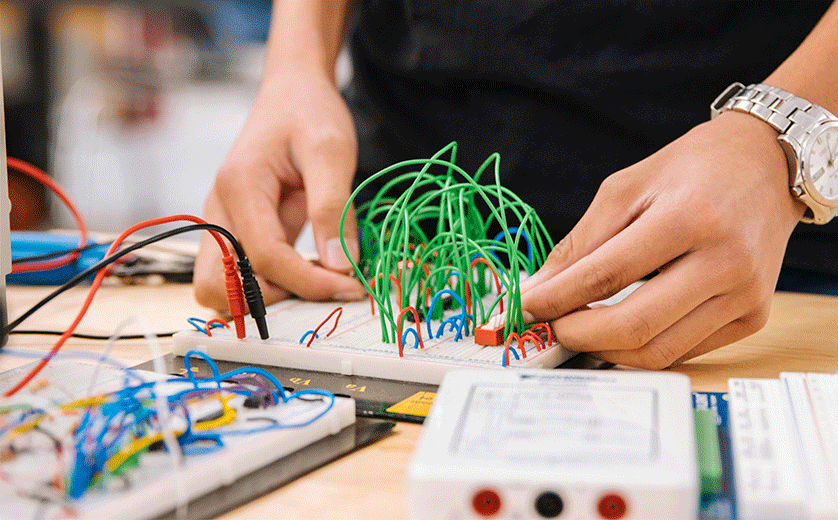Participation in a science, technology, engineering and math (STEM) apprenticeship program increased job happiness, finds a new study from the Brown School at Washington University in St. Louis.
Researchers examined the influence of LaunchCode, a St. Louis-based novel training and apprenticeship program in STEM, on participants’ life satisfaction and optimism.
“While both higher income and getting a job in STEM contributed to the positive effects of LaunchCode’s apprenticeship, the latter was more crucial for participants’ optimism,” said Yung Chun, a research assistant professor and first author of the study “Can training and apprentice programs in STEM increase worker life satisfaction and optimism?” The study was published Jan. 29 in the International Journal of STEM Education.

LaunchCode was founded in 2013 by Jim McKelvey, founder of Square, who earned degrees in computer science and in economics from WashU in 1987, to help people with nontraditional backgrounds find fulfilling, upwardly-mobile careers and to help companies find skilled new tech talent from all backgrounds and walks of life.
The St. Louis nonprofit offers free tech education and job placement opportunities to bring new people from all backgrounds into the tech field and to reshape the way employers think about hiring.
The university has a partnership with LaunchCode to help streamline the hiring process for LaunchCode graduates.
The Brown School study focused on LC101, LaunchCode’s flagship program. LC101 is a part-time, evening coding program that includes 20 weeks of courses and 12–52 weeks of a paid apprenticeship at a local employer.
The researchers found high life satisfaction and optimism among those who completed both the LaunchCode training course and the apprenticeship program.
“Providing apprenticeship opportunities is as important as, and maybe even more important than, providing skills,” Chun said. “We found that the apprenticeship improved both current life satisfaction and optimism toward the future, but not the simple completion of the program.”
As not all of those who finished the course completed the apprenticeship, Jabbari and Chun are working with LaunchCode to develop ways to increase persistence throughout the course — including the apprenticeship program.
“We find that part of what accounts for increased satisfaction and optimism is STEM employment and increased earnings that result from the apprenticeship,” said co-author Jason Jabbari, an assistant professor at the Brown School.
“Increases in satisfaction and optimism may be driven by the application of new knowledge in a real-world context, facilitated by the apprenticeship,” he said. “Apprenticeships may also allow for increased social networks, which has been found to positively impact satisfaction. These mechanisms could be at play in other fields as well.”
“Apprenticeships are particularly critical in rapidly shifting labor markets that are spurred by technological change, as they allow for new skills to be applied in the real-world settings,” the authors wrote. “Future research should continue to explore programs like LaunchCode and particular components within them, like apprenticeships.“
